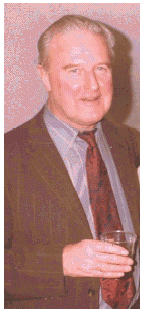This special issue of Modern Italy is dedicated to the memory of Christopher Seton-Watson, the founder of the Association for the Study of Modern Italy, who died on 8 September 2007. In a sense the issue is presented with real regret – the regret that it was not possible to produce a formal festschrift for him while he was still alive. We hope that the present issue will go some way to compensate for the omission.
The contributions presented here come from people who knew Christopher through different paths of contact and in different periods – some as university colleagues, some as his DPhil students in Oxford, some as collaborators in the later phase of his life after retirement from Oriel College. I am grateful to all those who agreed to contribute to this special issue; I am also grateful to Guardian Newspapers (and to John Pollard) for allowing me to reprint John's Guardian Obituary for Christopher – an obituary which covers ground it would be pointless to reproduce in this presentation. The articles are hardly homogeneous in subject matter but they do all reflect the common theme of interest for contemporary Europe, its history and its politics. Some deal specifically with Christopher's own publications, of which Italy from liberalism to fascism is the best known; others deal with different, if often related, topics – subjects which one can readily imagine Christopher being happy to reflect on and discuss, given his very broad interest in contemporary history and politics, which went well beyond Italy. It is appropriate to remember here that, although known as one of the foremost historians of contemporary Italy, Christopher's curiosity often carried him much further afield. He never lost interest for the ‘family’ concern with Eastern Europe and at times his studies took him away from Europe altogether. For example, when I was first sent to him as a postgraduate student in 1967 he was passionately enthusiastic about Latin American politics and sometimes rather reluctant to return to the question of Italian fascism (of which, for the moment and understandably, he had had enough).
As all those who knew him well would acknowledge, Christopher was in some ways a very shy man, certainly not one to seek the limelight. It was all the more remarkable, therefore, when, in 1982 and inspired by a visit to a conference of CONGRIPS (the US Association of Political Scientists), he decided to convoke a meeting of historians and political scientists involved, in British universities, in the study of contemporary Italy. The meeting took place at Oriel and the outcome was, as we know, the creation of the Association for the Study of Modern Italy, of which Christopher became the first president. ASMI represented a real milestone in the study of Italy in British academe, helping to end the isolation and lack of coordination among those occupied with a not always too respected minority subject. To make the point about the levels of isolation more forcefully, it is sufficient to say that when I first met Christopher in 1967 (he had just published his major work on Italy), he still did not know Denis Mack Smith, whose college front gate was perhaps two hundred yards from his own. ‘There is simply no occasion to meet’, he explained.
All that changed radically with the creation of ASMI, and British Italianists of ASMI – today not only historians and political scientists, but from other fields as well – have good reason to be extremely grateful to Christopher Seton-Watson (as indeed do Italian historians of contemporary Italy, whose parallel organisation – SISSCO – was inspired directly by the example of ASMI and the first London conferences of the mid-1980s). This issue of Modern Italy is simply an attempt to register that gratitude, to acknowledge our continuing collective debt to Christopher, and to give expression to the affection that so many of us felt for him.
